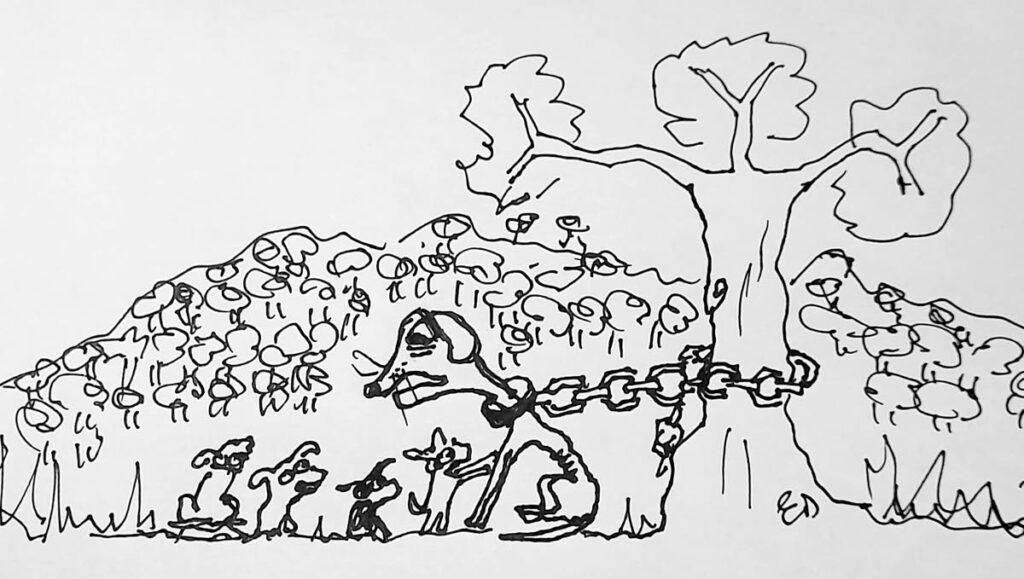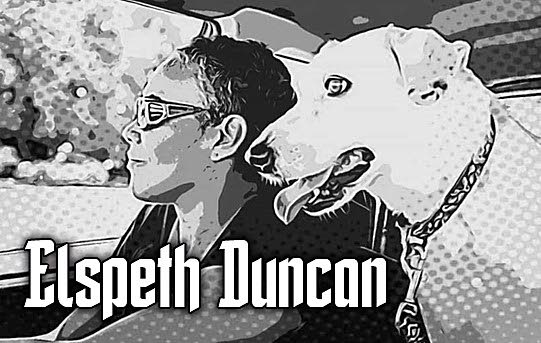Come together to do it the humane way

Recently, while discussing with a man the importance of spaying a female dog on his street, he casually informed me that he can “handle it another way.”
That is: “Ah go Lanate she.”
Lanate is a deadly poison. As I read recently, the equivalent of 2.5g (approximately the size of a small sugar cube) can kill 2,000 blackbirds, six medium-sized dogs, three children or one large adult. A large dose can kill within minutes, as the toxin causes unthinkably tormenting internal effects.
This heinous approach is a common and accepted way of "getting rid" of animals in Tobago, for various reasons.
It speaks volumes that the man laughed and said “Wha wrong with that?” when I expressed horror at his statement and identified it as animal cruelty, a criminal offence.
It speaks volumes when even a police officer can refer to poisoning of animals as “part of our culture.”
A few nights ago, someone I know living "up country" called to inform me of a man who was threatening to tie his female dog to a tree in the forest, with her four pups, because he cannot “handle them.”
Tying a dog in the forest, with her dependent pups, is a slow, torturous death sentence for those innocents. Such an act is one of many horrendously inhumane ones used to "get rid of" animals – mostly females that continue to give birth.
What I am writing may sound redundant to those who read the column, but it is necessary to continue mentioning these inhumane cases. One day, someone "in authority" must acknowledge the disturbing nature of these horrors and say “Enough is enough. We have to do something!”
What is the "something" that can be done about the problem of "unwanted" animals in Tobago?
A good first step is widespread spaying/neutering of the existing animal population.
Apart from the fact that the spaying/neutering of animals is too expensive for the average person ($600-$1,000 and up), many refuse to spay/neuter their animals, stating that God does not like it.
What a strange God – to frown upon a humane surgical method of animal-population control in favour of barbaric, torturous, often fatal methods of reduction.
On November 18, 19 and 20, the Tobago-based animal rescue/welfare NGO Venus Doggess Of Love (VDOL), in association with Worldwide Rural Assistance Programme (WRAP), hosted a low-cost spay/neuter clinic at Mt Irvine Bay Resort. Sixty-five animals (dogs and cats, domestic and feral) were "fixed" over the three days.

Given that the two operating vets (Dr Raymond Deonanan and Dr Lindsay Alexanderson) are "high-volume" vets, surgery could have been performed on at least twice that number of animals. Unfortunately, more people did not know of the initiative, and traps set for feral cats did not yield as many captives as anticipated.
Nevertheless, any spay/neuter dent made in the animal population will help to eliminate the possibility of thousands of offspring (the pyramid effect) in time to come.
To date, fundraisers and kind donations from followers of the VDOL Facebook page have supported our three low-cost spay/neuter clinics (November 2019 – then pause for covid – resume for July and November 2022). Our fourth Tobago low-cost spay/neuter clinic is proposed for March 2023.
High animal-welfare standards are vital to a healthy, attractive tourism product. In light of this, I must thank the Tobago-based entities that understand this truth and support VDOL in our spay/neuter efforts.
Mt Irvine Bay Resort – for allowing the use of hotel cabanas for our temporary veterinary clinics on all three occasions. The resort also maintains an animal welfare relationship with VDOL; we help with spaying/neutering and (in some cases) adoption of animals on hotel grounds.
Crown Point Beach Hotel, Kariwak, The Nest, Conrados – for providing complementary accommodation for our Trinidadian volunteers. VDOL has also supported Crown Point Beach Hotel and Kariwak by trapping/neutering their feral cats, to help establish healthy (necessary) colonies without multiplication.
Blu Restaurant, Fishpot, Honey’s Restaurant, Roosters, Sandy Point Village, Shepherds Inn, Shore Things Cafe, Veda’s – for providing (on more than one occasion) food for our hardworking volunteers and veterinary team. VDOL has, in turn, supported Blu, Honey’s and Shore Things by spaying/neutering feral cats they care for on their premises.
We may not be able to change the mentality of those who commit inhumane acts against animals, but we can educate and offer kind alternatives. Many problems will be solved when more of us work together consistently, to ensure (among other benevolent measures) the humane reduction of Tobago’s dog and cat population.


Comments
"Come together to do it the humane way"